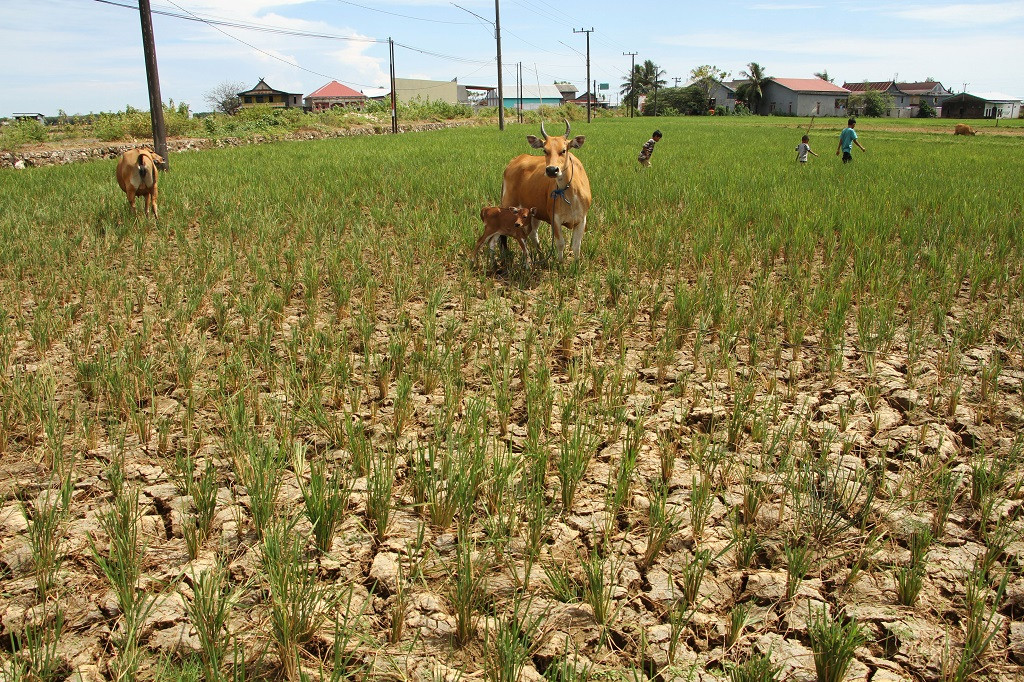Popular Reads
Top Results
Can't find what you're looking for?
View all search resultsPopular Reads
Top Results
Can't find what you're looking for?
View all search resultsHow AI can support global agriculture and food systems
The recently concluded CFS meeting of the FAO has produced policy recommendations that identify the various matters related to ensuring developing countries' access to AI and other technologies toward building food security around the globe.
Change text size
Gift Premium Articles
to Anyone
E
ver since artificial intelligence (AI) was pioneered back in 1950, when Alan Turing published his paper “Computer Machinery and Intelligence” about a test called “the imitation game” on a machine’s ability to exhibit intelligence, pundits have been debating how much it can and cannot do in benefiting humanity.
The recently concluded negotiation at the meeting of the Committee on World Food Security (CFS), a global platform that falls under the United Nations’ Food and Agriculture Organization (FAO), included quite a lengthy discussion on this topic, too.
In a nutshell, the CFS participants finally agreed on a pressing need to address the major impediments developing countries face in accessing new technologies, including AI, data collection and analysis, in order to close the digital divide between and within countries.
As an inclusive and collective platform with a mandate to achieve food security, the CFS concluded the last round of negotiations for policy recommendations on strengthening data collection and analysis tools for food security and nutrition (FSN). The final policy recommendation is set to be adopted at the 51st CFS plenary session on Oct. 26.
It is important to note that during the talks, Indonesia and other like-minded countries were able to maintain balance between the interests of developing and developed countries in at least three ways.
First is the need to provide financial and technical support for developing countries.
Developing countries need financial and technical support, including capacity building, technology transfers and innovative frameworks like the South-South and Triangular Cooperation, to strengthen their capacity to make responsible investments and to generate, collect and analyze high-quality data.
Intensive data collection paves the way for growers and all other actors in the agriculture and food systems value chain to adopt AI as a data-driven practice, so they can gain more insights and ultimately better control the processes that affect producers’ income and implement climate-smart agriculture.
Second is that infrastructure policies and investments are critical for all the different stakeholders.
With the support of international organizations and donors, the participants agreed to increase and sustain responsible investment and adequate resources to produce timely, quality, disaggregated, reliable and consistent FSN data.
Bringing the benefits of AI and digital agriculture to all farmers requires access to networks and affordable broadband internet, not only in residences, but also at farms. Farmers, smallholders and small and medium enterprises (SMEs) must also make several complementary investments, such as installing the infrastructure for collecting and transferring data.
Special measures or policy actions should guarantee that all stakeholders have access to fair and equitable participation in the benefits that AI may bring to agriculture. This is where infrastructure policies and some sector-specific regulations may be needed.
Third is ensuring balance between data collection and analyses and data protection, privacy and security.
The FSN data must be collected, used, analyzed and disseminated in ways that are effective, inclusive and equitable, while applying data privacy, data protection, data security and intellectual property safeguards and principles to ensure that such data are protected while addressing conflicts of interest.
Governance frameworks for FSN data and AI should strike the right balance across access, sharing, protection, privacy and security with the aim of creating trust and confidence.
Noting that we are not working in vacuum, the policy recommendation also acknowledged the UN Secretary-General’s Data Strategy and Roadmap for Digital Cooperation, covering digital protection, digital security, digital collaboration, digital public goods and digital inclusion.
To summarize, the recently concluded policy recommendation defines several issues on the importance of data-driven policy and AI in our agriculture and food systems policy and decision-making going forward. The data will be relevant to disseminating the FSN policies.
Innovation and new technologies are crucial in addressing today’s multiple food crises and in preventing food insecurity. AI could be a powerful tool in helping farmers, growers, food producers, smallholders and other actors to cope with the increasing challenges and complexities in today’s modern agriculture and food systems.
***
The writer is a data negotiator, a member of the FAO Committee of Constitutional and Legal Matters and Indonesia’s alternate permanent representative to the FAO. The views expressed are personal.











